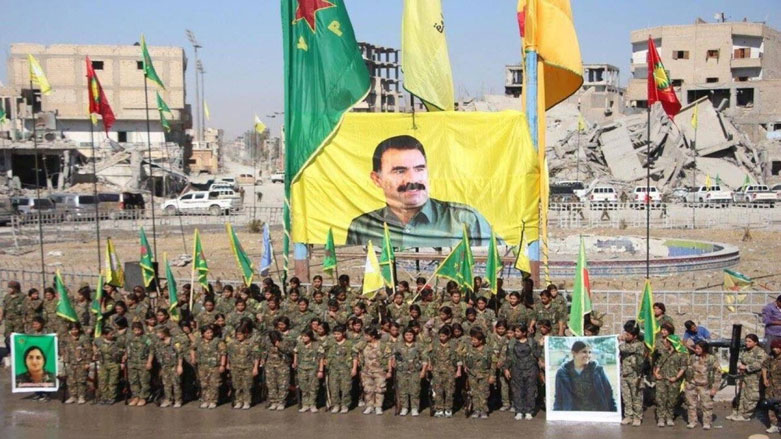PKK leader jailed in Turkey sends message to Arab tribes in northeast Syria
Abdullah Ocalan, the imprisoned founder and leader of the Kurdistan Workers’ Party (PKK), received a visit from his brother Mehmet Ocalan last week in the Turkish island prison of Imrali and discussed the current situation in northeast Syria, a Syrian Kurdish news agency reported on Saturday.

Erbil (Kurdistan 24) - Abdullah Ocalan, the imprisoned founder and leader of the Kurdistan Workers’ Party (PKK), received a visit from his brother Mehmet Ocalan last week in the Turkish island prison of Imrali and discussed the current situation in northeast Syria, a Kurdish news agency reported on Saturday.
“If Turkey enters Syrian territory, then war is not the solution. Turkey will be harmed more, and the people living in the region also will be affected,” Ocalan said, referring to the people of northeast Syria.
“I stayed 20 years in Syria, and I know its people well. I know the Arab tribes there also well and I had relations with them. Deliver my greetings to the Arab tribes and the people there,” the leader's brother relayed to the Hawar news agency.
Ocalan is the founder of the PKK, a group that has fought an insurgency over Kurdish rights against the Turkish state since 1984. He has been in jail since being arrested in 1999 while in Kenya.
In 2003, a Syrian Kurdish party known as the Democratic Union Party (PYD) was established in Syria and, along with its military forces, the People’s Protection Units (YPG) and the all-female Women's Protection Units (YPJ), played a significant role in the Syrian conflict that has been raging since 2011.
The YPG and YPJ have been the leading components of the US-backed Syrian Democratic Forces (SDF), which was established in 2015 and contains not only Kurdish fighters but also those from dozens of Arab tribes in northeast Syria.
This helped the SDF seize the two predominantly Arab provinces of northeast Syria, Raqqa and Deir Ezzor, from the Islamic State during the past two years.
Until 2015, the Kurdish administration, run by the PYD, was in charge of Syrian Kurdish-majority towns on the border with Turkey. The ruling council there was called TEV-DEM and its military force was made up of the YPG and YPJ.
From 2016 until the present day, the SDF, led by YPG and YPJ, controlled the Arab majority areas of Raqqa and Deir al-Zor. The ruling council has since become the Syrian Democratic Council (SDC).
This progression is a key reason that the PKK leader Ocalan and the other PKK senior commanders have paid close attention to the Arab tribes in the region as well as the US government.
Both PKK commanders and US officials see the engagement of Arab tribes in ruling the region as a stabilizing factor in northeast Syria that would play a positive role in finding a solution to the protracted Syrian civil war.
Editing by John J. Catherine